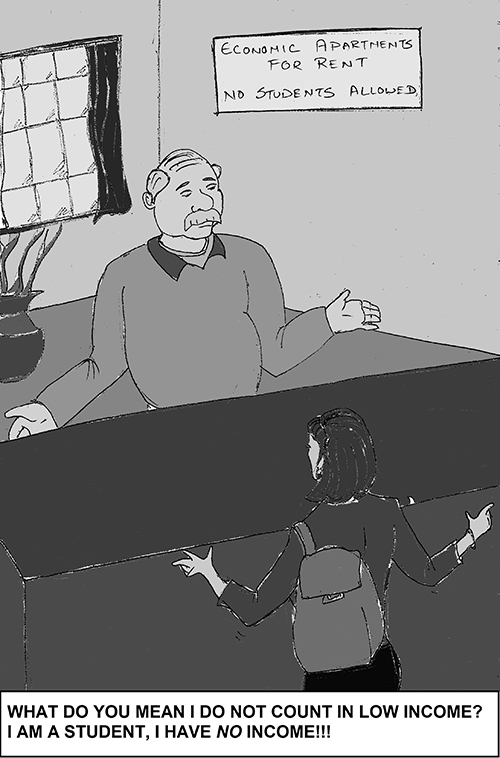
Despite being referred to as a “fiscal cliff,” the current debt crisis in Washington, D.C. is more akin to a game of Chicken: House Republicans stay strong with a solution based on hard cuts to spending, mainly to widely used entitlement programs such as Medicare, Medicaid and Social Security, while Democrats flatly reject cuts in favor of a more balanced approach, without saying what such an approach might look like.
Normally I’m a fan of the partisan debate process; it usually keeps bad legislation from being passed. But in matters of budget, there shouldn’t be this kind of brinkmanship. It does nothing for the good of the country and can only lead to disaster.
In what has become the modus operandi over the past four years, our elected representatives posture about what they will or will not agree to before coming to a last minute deal that narrowly averts a government shutdown, tax hikes and spending cuts. And what do these last-minute deals contain?
As it turns out, a lot of extraneous spending—aka pork. You don’t often hear about the amount of pork that goes into these bills, but it’s important to know what’s being promised in return for a favorable vote.
For instance, in the deal passed and signed on Jan. 2, there was a provision for a $46 million tax break for NASCAR speedways, another providing just under $200 million for rum-makers, and what I feel is the most absurd: a $9 billion tax break for banks and multinational corporations that engage in what is called “active financing,” which supposedly incentivizes multinational corporations to do business on foreign soil.
Although there’s certainly a lot more pork in this emergency spending extension bill, these are just some of the more egregious items I found. And what kind of pork does the average American get out of the deal?
Very little, it turns out. There are extensions of tax cuts for 98 percent of wage earners, extension of the 72-week unemployment insurance and even extension of tax credits for the purchase of certain “green,” energy-efficient appliances. But there’s very little else. In fact, due to either Congressional oversight or willful inaction, approximately 77 percent of wage earners will have a payroll tax increase.
The game of politics doesn’t stop there. Last Wednesday the House passed a bill that eliminated the debt ceiling for six days and even had a “No Budget, No Pay” provision that threatened to withhold pay from Congress if it is unable to pass a budget.
The problem with this provision is that it doesn’t matter if a bill isn’t passed by the deadline and the government shuts down. The text of the 27th Amendment states: “No law, varying the compensation for the services of the Senators and Representatives, shall take effect, until an election of Representatives shall have intervened.”
Given that the no pay provision wouldn’t affect Congress for at least two years, it’s plain that this provision is little more than a publicity stunt designed to make the Democratic-controlled Senate either pass a bill that House Republicans can stomach or play the part of dunce.
The most important aspect of this bill is that it—temporarily—eliminates the debt ceiling. If Congress can do it on a temporary basis, why can’t it make the bill permanent? Would doing so be bad for the country or the economy?
The Economist cites a limited-release Morgan Stanley memo that analyzed the de facto budget of western nations and found that they are grossly over-leveraged. We’re borrowing too much money to ever have a chance of paying our bills. We have to stop. It isn’t sustainable and will only lead to catastrophe.
The way out of our current and historical crisis will be painful. But, as the saying goes, something worth doing is rarely easy. There will have to be tax hikes across the board, cuts to our favorite entitlement and spending programs and even cuts to the sacrosanct military budget. But in order to stop playing the proverbial game of Chicken, it will need to be done and be done quickly.

